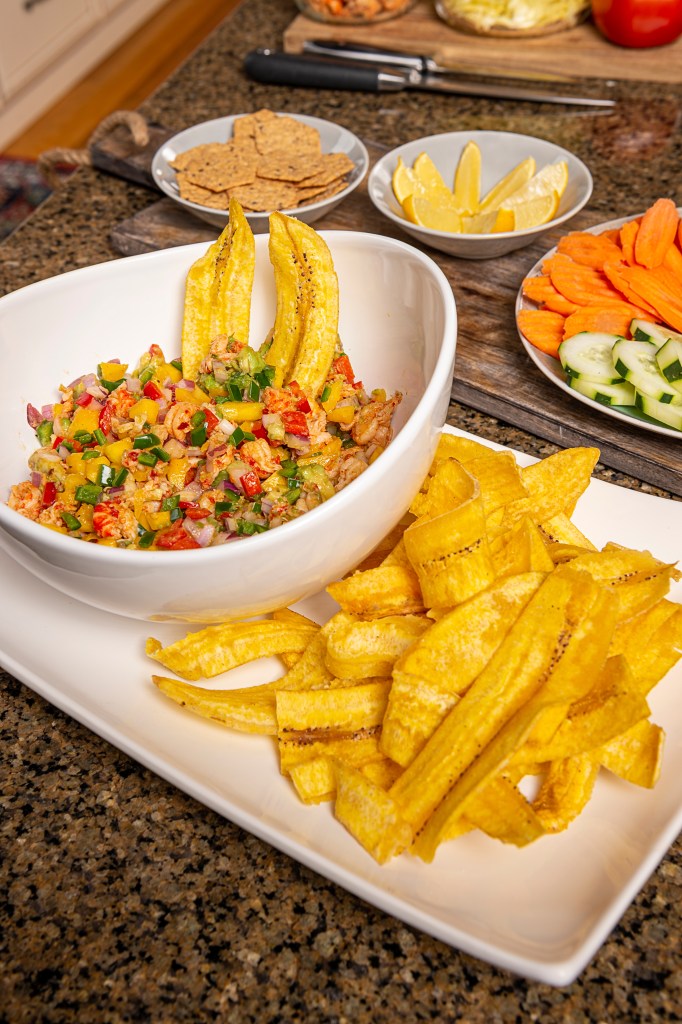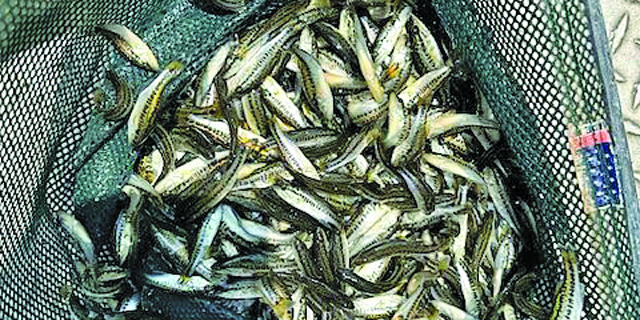Your Partner in Weight Loss
Published 8:00 am Wednesday, October 20, 2021

- LSU crawfish appetizer and plantain strips. The crawfish is from Louisiana Seafood Direct Shop. Lee Ball Photography
When Laurel Blackerby was a young girl, a nutritionist made a presentation at her kindergarten career day – and something inside her snapped to attention. The brightly-colored posters, the enthusiasm, the healthful food, the notion that proper nutrition could help prevent some of the diseases that affected her family. It all instantly made sense to her and motivated her in a way that still resonates today. “It just clicked,” she says, with a smile. “I knew this was going to be my life’s calling.”
Blackerby went on to earn her MS in nutrition and dietetics from Kansas State University and has been in the industry ever since. Today she is a weight loss coach and nutrition educator with a roster of clients who rely on her to help them make the changes in their behavior that will support their wellness goals. She’s also the health and wellness coordinator and nutritionist for the Port of Delcambre.
Trending
While she doesn’t diagnose or treat medical conditions, and she will always advise clients to consult a medical provider before changing their diet, she works in unison with practitioners for the health of the client.
What is a Weight-Loss Coach?
“I provide education and weekly support that encompasses motivation, accountability and goal-setting to help clients create positive lifestyle habits and to develop a healthier relationship with food to achieve overall weight loss and wellness goals,” Blackerby says.
Support for her clients begins with personal interactions and touchstones throughout the week – up to three points of contact weekly. “I have my clients weigh in twice per week, and the following day I send feedback via a video or messaging,” she explains. “The most valuable contact is the one-on-one support session, where we delve in deeper to discuss what challenges they faced in the last week and which ones they’ll face in the upcoming week.” Blackerby says these meetings also offer an opportunity to set three mini-goals for the week that are not scale-related, but that will help clients achieve their desired weight loss.
Blackerby works to offer as much opportunity as possible for connection, both with and among her clients. She offers a weekly women’s group for additional support and accountability, as well as regular tips to help with mindset and motivation. “Clients also have the ability to message me through my app anytime they have questions or need additional support,” she says. “Most also follow me on social media, where they can see my own flexible dieting food posts, recipes, and client wins or success stories.”
Her Clients
Trending
People seek out Blackerby’s expertise for various reasons. There are those that want to achieve a transformation of body composition, meaning they don’t necessarily care about the number on the scale but want to shed a little fat and gain a little muscle. Some have been told by their doctors they need to improve some of their numbers. But most, she says, need help with weight loss, ranging anywhere from ten pounds to over 100 pounds. “I work with anyone who doesn’t know the foods they should be eating to attain their goals, or those struggling to lose weight on their own, or anyone who has tried every diet out there,” Blackerby says. “Anyone who has ever felt guilty after eating or ‘derailing’ their diet, should seek help with coaching, whether that be with a weight loss program or one-on-one coaching.”
She most often sees life balance as her clients’ biggest challenge. “A busy work week can entail frequent meetings, functions and events, often with catered food,” she explains. “Or maybe their work week is disciplined and structured, yet they lose sight of planning and goals over the weekend.” Many struggle with balancing their work week with family life, such as children’s extracurricular activities, finding time for family meals, or even planning meals the whole family can enjoy. “Work can be hard. Home life and family balance can be hard. Food and nutrition doesn’t have to be,” she assures.
Strategies for Success
“Almost eighty-percent of the nation is considered overweight or obese – overweight being a BMI over 27 and obese defining an BMI over 30,” she reveals. “One in ten has diabetes. One in seven has cardiovascular disease.” (She frequently refers anyone interested in knowing more to the Centers for Disease Control and Prevention webpage on healthy weight). There are myriad factors that are causing these unhealthy BMIs, but Blackerby points to the replacement of the old food pyramid with MyPlate as a step in the right direction. “The Myplate method is fantastic! It is an actual visual of how your plate should look for optimal nutrition and health. A focus on half the plate being vegetables or fruits, a quarter grains, a quarter proteins, and a serving of dairy at every meal,” she explains.
Speaking of visualizing, Blackerby claims visual cues, like pictures of a MyPlate example or healthful foods posted everywhere, are a great strategy. “It is estimated that we see over 4,000 food cues per day,” she says. “Having veggies on a screen is a visual cue to eat more vegetables. This is also why I recommended putting vegetables at eye level in the fridge. That empty vegetable drawer can now be filled with protein snacks, such as protein shakes, low fat Greek yogurt, boiled eggs, tuna salad, turkey or ham roll-ups,” she suggests.
If you assume Blackerby doesn’t understand your struggle because she is not a fan of food, you’d be wrong. “I love food,” Blackerby exclaims. She attributes her healthy relationship with food to growing up in a loving family with a grandfather who grew or raised most of the produce they ate. “I want everyone to be able to enjoy the same love and passion as I do for food without regret, guilt, shame, or even labeling,” she says.
“Food is just food; it’s not good or bad. At the end of the day, food equates to energy.” She points to the occasional snarky comment she gets online after posting a photo eating strawberries or carrots – “you should know better” and “those have carbs” – as proof of unnecessary food labeling and the unhealthy feelings we attach to foods.
She prefers an individualized approach to clients, depending on personality type and different factors that motivate them. But consistency is the key – both in her approach and in her clients’ efforts. “Whether you’re one hundred percent motivated or only fifty percent, there is always some action you can take towards your goals. Think of it as a goal of wanting to invest one dollar, ten dollars, one hundred dollars daily. Just because you don’t have the entire investment, it’s still better if you invest something,” she explains. “The same is true with your health and weight-loss goals.”
To learn more about Blackerby and weight loss coaching, visit her website at healthylivingwithlaurel.com.





